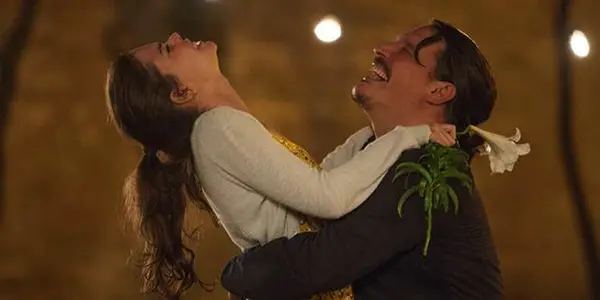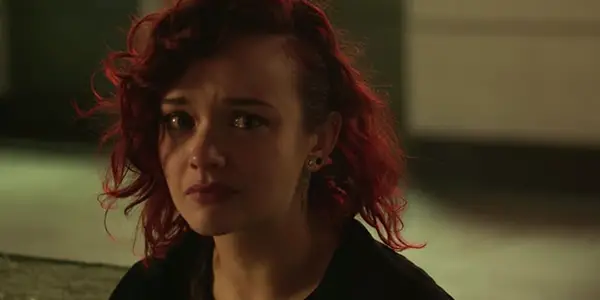LIFE ITSELF: Elevated Love Story Through The Ages Falls Flat

David is a film aficionado from Colchester, Connecticut. He enjoys…
Life Itself is one of the more frustrating film-watching experiences I have had in some time. From Dan Fogelman, creator of This is Us and director of the Al Pacino-starring Danny Collins, it’s a film which both shows experience behind the camera and reflects Fogelman‘s sometimes subtly effective sentimentality.
Yet, despite the clear dedication poured into the story, Life Itself ultimately doesn’t work. By attempting to both be something more profound than the romantic comedies it emulates and yet also conveniently land within the same end result, it’s a film very much at odds with itself. It isn’t a complete disaster, but it’s far less compelling than it ought to have been.
Romance Across Generations
Life Itself focuses on two families. The first consists of Will Dempsey (Oscar Isaac) and Abby (Olivia Wilde), his wife. The two met in college, fell in love, and eventually have a baby together, named Dylan (Olivia Cooke). The second family consists of Javier González (Sergio Peris-Mencheta) and his wife Isabel (Laia Costa), who both live in Spain on a facility that produces olive oil, at a company owned by Vincent Saccione (Antonio Banderas).
When we are introduced to the Gonzálezes, we don’t yet know how they are connected to the Dempseys, though an incident witnessed early on soon shows the connection. Over the years, the two families experience conflict, heartbreak, and frustrations, before finally achieving some semblance of hope by the conclusion of the film.

The idea of romance through the years, or just the idea of focusing on multiple interrelated stories, is nothing new, having been seen in films ranging from the beloved Christmas classic Love, Actually or the more trite Valentine’s Day to those more thought-provoking in nature, such as Paul Thomas Anderson‘s Magnolia or Alejandro G. Iñárritu‘s Amores Perros.
Some of these are arguably more successful than others, but the basic idea present is showing how the experiences of multiple people through the years both compare and contrast with one other. In life, there are heroes, and there are villains, and some people don’t conveniently fall into either category. In addition, sometimes an unfortunate incident that spans seconds at most can change everything, and there’s nothing we can do but learn to live with what happened.
Life Itself shoves itself somewhere between a romantic comedy and a more far-reaching drama. At times, such as with the budding relationship of Will and Abby, it is hopeful and sappy, while at others, such as at other points in their relationship, it is unwaveringly dour. Kudos to Fogelman for at least attempting to show the wide-ranging spectrum of emotions present in any relationship. Yet, the issues with Life Itself soon become evident here as well.
Underdevelopment and Lack of Focus
For a film which is wholly dependent on the strength of its characters, Life Itself is oddly detached from them. And with talents like Oscar Isaac, Olivia Wilde, and Mandy Patinkin in front of the camera, this becomes even more clear. An example is the character of Will, played by Isaac. Will is seemingly pulled straight out of a Nicholas Sparks novel, with much of his personality and lines of dialogue resembling a Hallmark greeting card. We don’t really gain much of a sense of who he is outside of his overly strong attachment to Abby, and so when we gain an insight into his eventual plight, there aren’t a lot of emotional stakes behind it.

The same can be said about much of the film’s characters. Olivia Cooke, for example, can be described as “tortured, misunderstood teen,” while Mandy Patinkin and Jean Smart are glaringly underutilized. Easily the character with the strongest impact is Vincent, played by Antonio Banderas, who is given a long, expressive dialogue when we first meet his character, delving into his background and his personality with a dynamic focus.
The Gonzalez family as a whole is given some of the film’s strongest moments, including that initial exchange between Javier and Vincent, a gorgeous montage of the beginnings of his family with Isabel, (played by starlet-on-the-rise Laia Costa) and the eventual conflicts and struggles that seemingly come on the back of nearly every relationship. If you were to take this story individually, and expand on it a bit more, it would be a passable standalone movie.
But because this is a “story of love through the ages,” Life Itself isn’t content to just allow its characters to breathe. Just when one story starts to get interesting, it turns away from it, with the sense that something contrived is going to bring them back together unnecessarily (a voice-over by an as-of-yet unnamed character also continually reminds us of this fact).

The idea of cosmic coincidence on its face isn’t a negative one, as it is used to perfection in a film such as the aforementioned Magnolia, yet here the two stories are so undercooked that bringing them together just doesn’t feel earned.
A Valiant Effort that Falls Flat
Understandably, Dan Fogelman gave himself an ambitious task when he tackled Life Itself. A story focused across three generations which simultaneously attempts to be both a feel-good romance and a philosophical attempt at pulling meaning out of nothing is obviously difficult. Notably, there are pieces of the film that do actually work.
A Bob Dylan-inspired score, for example, fittingly resonates throughout the film, with a special emphasis on his 1997 album Time Out of Mind and the song “Make You Feel My Love.” His comeback CD after years of less than satisfactory work, the album and that song in particular seem to express the idea that, just because failures are commonplace, it doesn’t mean you shouldn’t keep putting your best foot forward.

Such an idea is expressed throughout Life Itself. Romance doesn’t ultimately work out for everyone, and sometimes people are a victim of unfortunate circumstance, but that doesn’t mean we are all doomed for this fate. The issue here, though, is that much of Life Itself doesn’t adequately fit within this sentiment. In earlier moments, it attempts to explain life as a chaotic, unreliable force, while its conclusion, with its saccharine, feel-good ending, completely undermines that ideal. The end result is much like if Quentin Tarantino directed a Disney fairy tale (a comparison which the film’s structure and frequent Tarantino references would seem to actually support). Yet, as opposed to blending together, the two contrasts often mesh instead.
Life Itself: Conclusion
To conclude, Life Itself is an underwhelming endeavor. It’s ambitious, well-shot, and with clear passion behind both its writing and production, yet it doesn’t work nonetheless. Fogelman‘s film has heart, but it’s ultimately too shallow in execution to support his grander ambitions.
What are your thoughts on Life Itself? Do you think the film’s blend of feel-good romance and dour drama worked well? Tell us your thoughts in the comments below!
Does content like this matter to you?
Become a Member and support film journalism. Unlock access to all of Film Inquiry`s great articles. Join a community of like-minded readers who are passionate about cinema - get access to our private members Network, give back to independent filmmakers, and more.
David is a film aficionado from Colchester, Connecticut. He enjoys writing, reading, analyzing, and of course, watching movies. His favorite genres are westerns, crime dramas, horror, and sci-fis. He also enjoys binge-watching TV shows on Netflix.












